AN INTERVIEW WITH SHARON CARSON, COMMUNITY INVESTMENT PANELIST
The Community Fund is one of our biggest assets at United Way of the Coastal Empire.
Every year, Community Investment volunteers are organized into panels that focus on different issues facing our four county area. Each panel reviews local agencies’ programs that aim to solve problems within the categories of: academic success, youth development, crisis intervention, economic opportunity, health & safety, and living independence. The panelist volunteers go through training, have site visits, review applications, and openly deliberate to decide on the financial investments into the programs.
Meet Sharon Carson, a die-hard Atlanta falcons fan, and a die-hard United Way fan. She has been a Community Investments panelist for over 10 years serving on multiple panels and we sat down with her to understand the decision making process of allocations.
PLEASE EXPLAIN IN YOUR OWN WORDS HOW THE PROCESS ACTUALLY WORKS FOR THE COMMUNITY FUND DISTRIBUTION?
Well most people probably know that there’s this big fundraising drive every year and the funds that are collected are distributed to the various agencies who requested funding. What I do is review the requests for funding, meet with the families affected, and meet with the directors and staff to get more input from them. You can see a lot on paper, but what you want to hear and what they actually do is what we figure out in the process.
As panel members, we evaluate the applications based on how well it is written, what we learned in the actual interviews with the staff members, and then we individually rate the programs. We submit that to United Way, and then we come together to do our final deliberations and, as a group, come to a consensus about how these programs rank in terms of their particular need in funding. (Looking at) both whether or not they are meeting their target goals, or whether they are meeting the needs of their targeted clients. We make recommendations to the United Way board of directors, and they make the final decision.
WHAT IS YOUR FAVORITE PART OF THE PROCESS? WHY DO YOU KEEP COMING BACK YEAR AFTER YEAR?
My favorite part is being able to continue to be a part of something that is bigger than myself. I have been a United Way supporter for many years, all during my work life at DFCS, and that was 34 years. I’ve seen a lot of needs in my life. I’ve worked with disabled adults, with children, with families, so I know that there is a tremendous need and to be able to help put the funding where the needs are, means a lot to me. It gives me an opportunity to really see how the system works, and to be a part of the solution rather than the problem.
DO YOU FEEL LIKE YOU TRULY GET TO HAVE A VOICE IN THIS DECISION?
Oh yeah! Absolutely. Many of the agencies that I have visited are many of the agencies that I have worked with when I was in DFCS, and so I get to see another side of them. Some of the nuances of what they do and to be able to report where they need help, it’s really an opportunity to be on a side where I can help.
IN THE GROUP’S DELIBERATION, IS THAT A HEATED DISCUSSION OR DO YOU ALL TEND TO AGREE ON WHAT THE PRIORITIES ARE?
You know, I’ve never been to a heated discussion. Because we are able to sit down intelligently, if we have a particular issue, whether good or bad, we are able to voice that concern whether we think they need to be raised up, or ranked a little bit lower in comparison. We have a very diverse panel. There are people that are well versed in social services, in finances, or in performance measures, and just a variety of disciplines that we can all come together and have a consensus in terms of our rankings in those particular agencies and our recommendations.
IT’S EASIER SAID THAN DONE. AND IT’S OBVIOUSLY A HUGE TIME COMMITMENT ON THE PANELISTS PART AS VOLUNTEERS, AND ALSO ON THE AGENCIES TOO FROM HAVING TO SUBMIT REPORTS AND FOLLOW-UPS.
It really is! I have been on both sides of the process. When I was working at DFCS we had a program that provided in home services to elderly and disabled, and for years we sought funding through United Way because there was no state or federal funds to assist. So I have been on the side of defending our application. And now being on the other side, I understand how the agencies feel and having everyone sitting there looking at you.
THAT PROBABLY GIVES YOU SUCH INTERESTING INSIGHT NOW BEING A PANELIST. SO YOU’VE BEEN VERY INVESTED YOURSELF IN THIS SUBJECT MATTER IN OUR COMMUNITY…
I make sure I stay involved because life is short. And I have to know that I have made a difference somewhere. This is probably the biggest thing in my life that lets me know that I have. It’s very rewarding. And as long as I am able, I will continue with United Way because I really love it. And like you said, I am invested. I continue to provide my own financial support and I want to know that my dollars are going where it’s needed. I truly feel like it’s a much needed service, much needed program. I just can’t say enough about it.
HAVE YOU SEEN THE IMPACT OVER THE YEARS THAT THE COMMUNITY FUND HAS BEEN ABLE TO MAKE FIRSTHAND?
I have. Especially the (Frank Callen) Boys & Girls Club, some of my nieces and nephews went there. My oldest niece went through the program and became Youth of the Year at Frank Callen and now she’s graduated from Howard University, working in Chicago. So on a personal level, I saw that impact. Without that program (being funded by United Way), there’s a lot of things that she would never be exposed to.
FOR US HERE IN GREATER SAVANNAH AREA, THE COMMUNITY FUND IS A HUGE PIECE OF SAVANNAH’S HEART. WHAT IS YOUR OPINION ON THE TRUE VALUE OF BEING WELL ROUNDED IN THE COMMUNITY, IN THE WAY THAT THE UNITED WAY COMMUNITY FUND WAS FIRST CREATED FOR?
There are SO many needs in any community. Homelessness is one problem, but you also have the needs of the children who are not homeless but need supportive services in order to become successful in school. You have people with disabilities who are in need because their parents are getting older and need a program to realize their independence, or also senior citizens who can’t get out and do things who need in-home companionship.
There’s more than just that one problem going on in the community, and so we really need to get the word out that the Community Fund is used to help all of these other people as well. You can’t just focus on one group of people and their problem, because then you let all of these other problems continue to grow.
IS THERE ANYTHING ELSE YOU WANT TO SHARE?
I want to see more people not only become aware of United Way, but they need to know that it’s for the greater good of the community. Just because a particular problem doesn’t affect you personally, doesn’t mean it doesn’t affect you in some way. And if you can help resolve these particular issues, that is going to help all of us in the long run.
One Gift Helps Many
The nonprofit organizations we partner with are essential to the health and vibrancy of our community. United Way is proud to support 87 highly effective programs at 54 highly qualified nonprofits across Bryan, Chatham, Effingham, and Liberty counties in 2019.
In addition to our funded programs, we build agency capacity through training series, volunteer projects, and 2-1-1 resource referrals.

